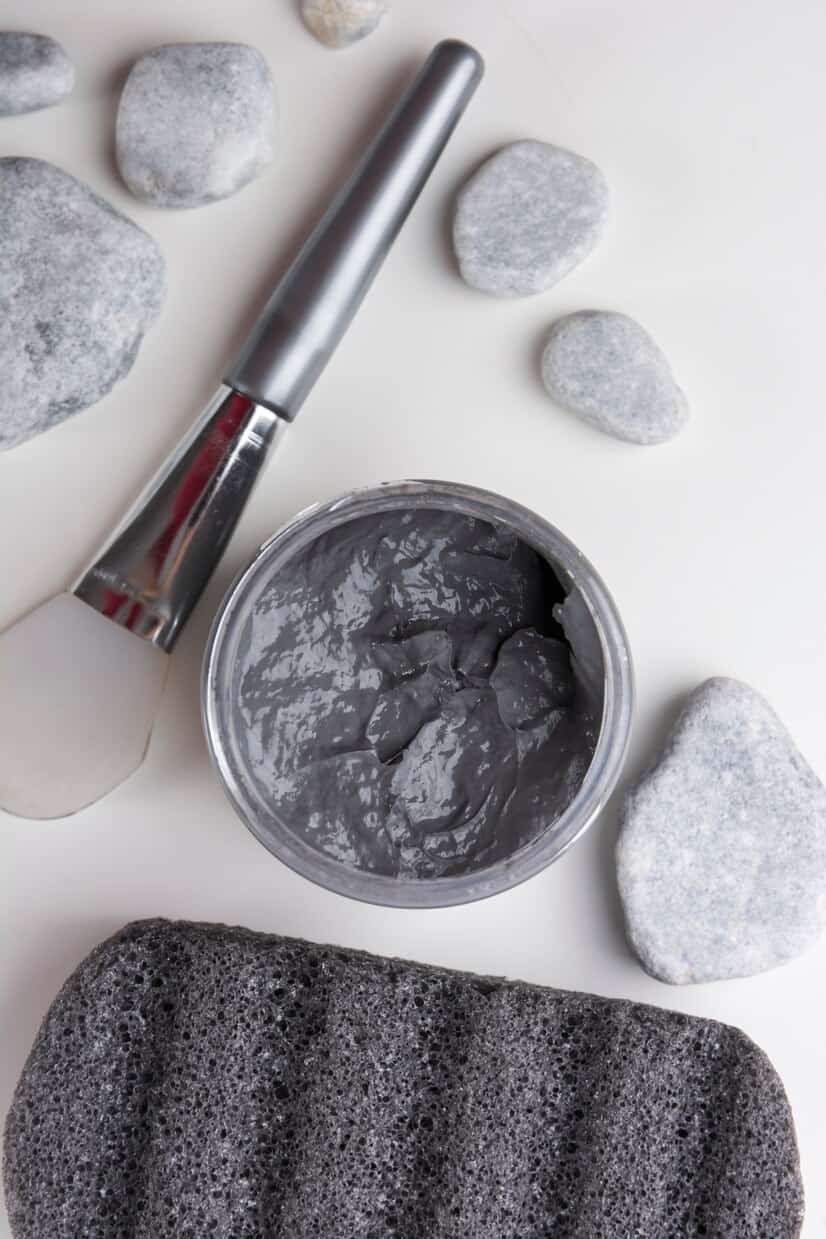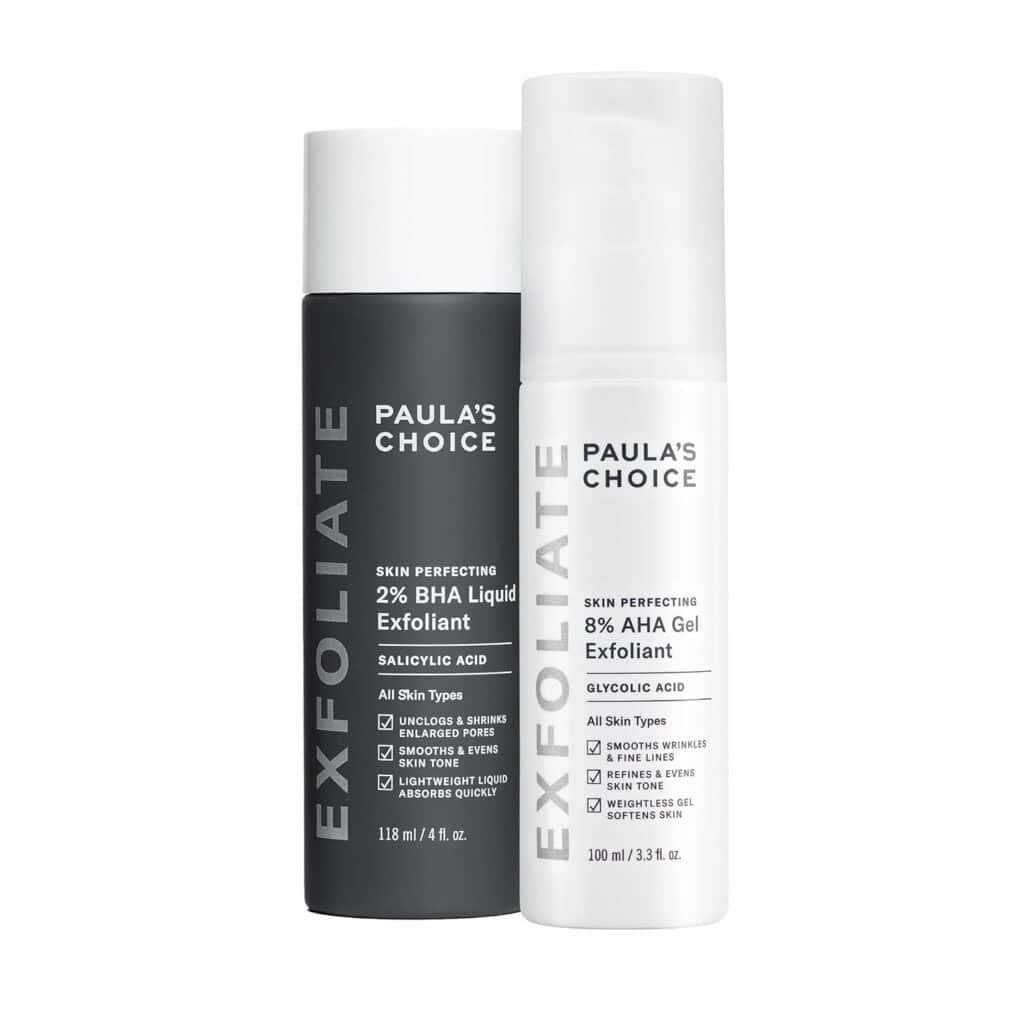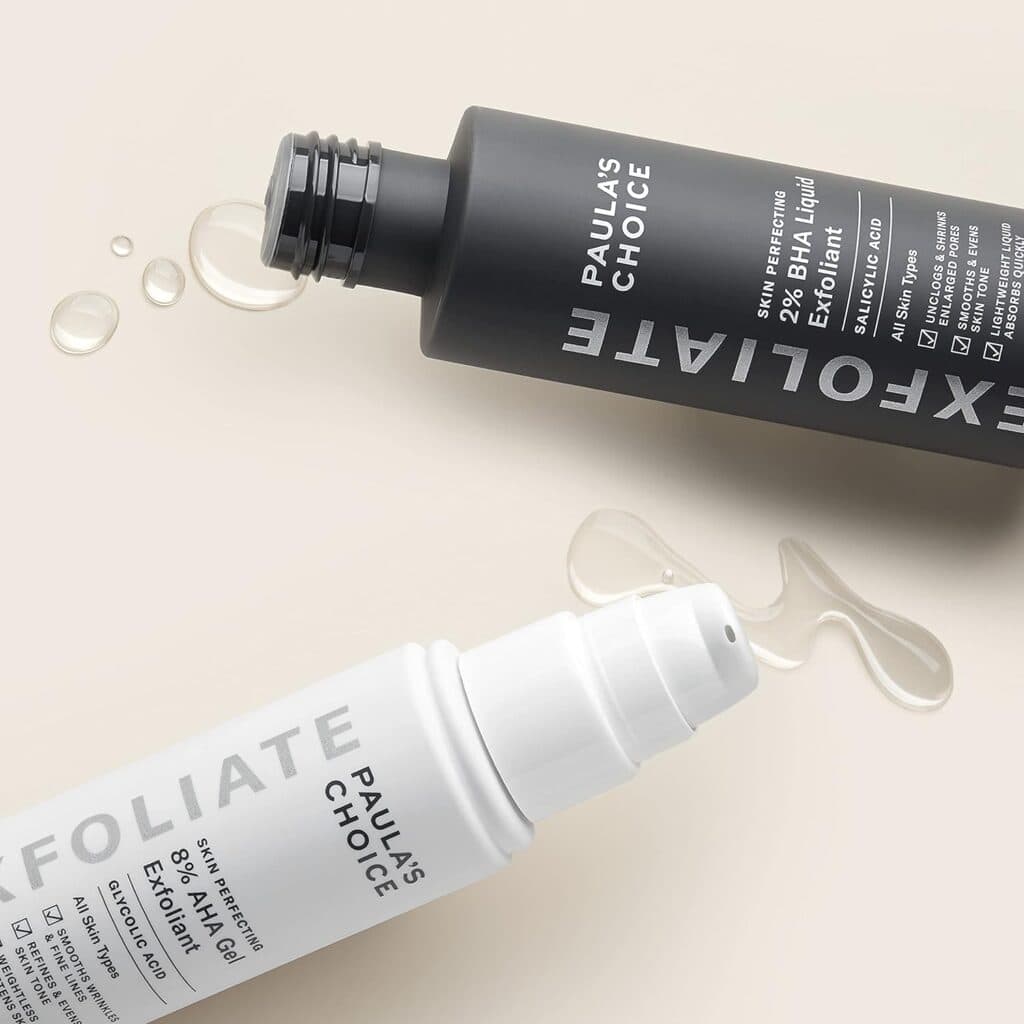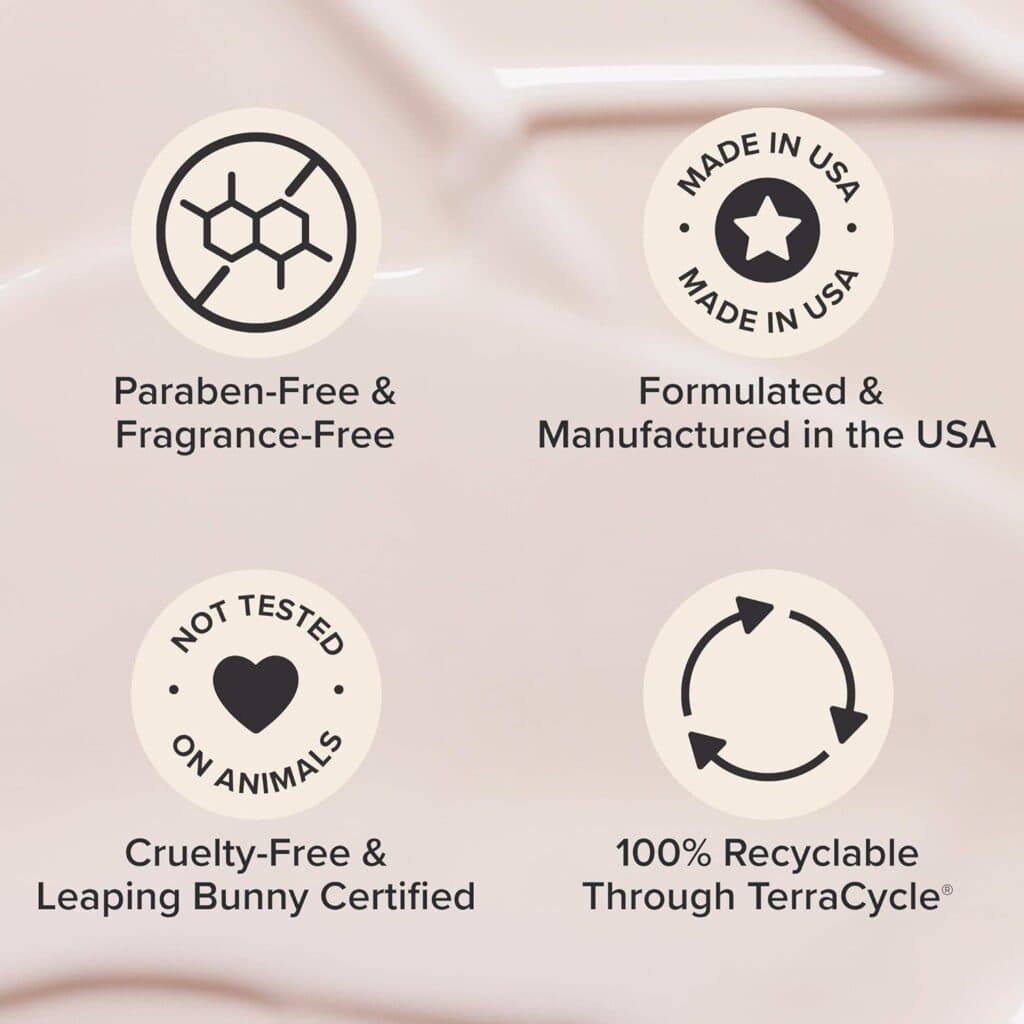
Unlock Radiant Skin: The Basics of Skin Cell Turnover. Have you ever wondered why some people have a glowing complexion while others struggle with dull, lackluster skin? The secret to radiant skin lies in understanding the process of skin cell turnover.
Skin cell turnover refers to the natural process by which our skin cells regenerate and renew themselves. This process is essential for maintaining healthy and vibrant skin, as it helps to slough off dead skin cells and reveal fresh, new cells underneath.
In this section, we will explore the concept of skin cell turnover and its importance for achieving a radiant complexion. We will also discuss the natural process of skin cell turnover and how we can support it for optimal skin health.
Key Takeaways:
- Skin cell turnover is the natural process by which our skin cells regenerate and renew themselves.
- This process is crucial for maintaining healthy and vibrant skin, as it helps to slough off dead skin cells and reveal fresh, new cells underneath.
- Understanding and supporting skin cell turnover is essential for achieving a radiant complexion.
What is Skin Cell Turnover?
Skin cell turnover is the natural process of skin cell renewal and regeneration, where old or damaged skin cells are shed and replaced with new, healthy cells. This process is essential for maintaining healthy and vibrant skin, as it helps to maintain the skin’s texture, tone, and overall appearance.
As we age, our skin’s natural cell turnover rate slows down, which can lead to a dull, lackluster complexion. This is why it’s important to take care of our skin and promote healthy skin cell turnover through proper skincare and lifestyle choices.
According to Dr. Rachel Nazarian, a board-certified dermatologist at Schweiger Dermatology Group in New York City, “Regular skin cell turnover is important to keep skin looking youthful, healthy, and fresh. When cell turnover slows down, skin can look dull, dry, and uneven.”
Understanding the Skin Turnover Rate
The skin turnover rate refers to the speed at which our skin naturally sheds dead cells and replaces them with new ones. This process is vital for maintaining healthy and vibrant skin.
The skin turnover rate varies depending on several factors, including age, lifestyle, and environmental factors.
Factors Affecting Skin Turnover Rate
Age: As we age, our skin turnover rate slows down, resulting in a dull, dry complexion. In our 20s, the skin turnover rate is approximately every 28 days, but by our 50s, it slows to every 45-50 days.
Lifestyle: Unhealthy lifestyle habits such as smoking, excessive alcohol consumption, and a poor diet can all contribute to a slower skin turnover rate. On the other hand, exercise and a diet rich in antioxidants can promote healthy skin cell turnover.
Environmental Factors: The environment we live in can also play a role in our skin turnover rate. Exposure to pollution, UV radiation, and harsh weather conditions can all affect the skin’s natural renewal process.
A slower skin turnover rate can lead to a build-up of dead skin cells, which can clog pores and lead to breakouts. It can also result in a dull, lackluster complexion.
Next, we will explore the benefits of maintaining a healthy skin turnover rate and practical ways to promote it naturally.
The Benefits of Healthy Skin Cell Turnover
Promoting healthy skin cell turnover is essential for maintaining a youthful, bright complexion. Not only does cellular renewal help to get rid of dead skin cells, but it also promotes the growth of new, healthy skin cells.
One of the key benefits of healthy skin cell turnover is the improvement of skin texture and tone. As old, dead skin cells are shed and new ones emerge, the skin appears smoother, softer, and more radiant.
In addition to enhancing skin texture, regular cellular renewal can also help to reduce the appearance of fine lines and wrinkles. By promoting the growth of fresh, plump skin cells, healthy skin cell turnover can help to create a more youthful, vibrant appearance.
| BENEFITS OF SKIN CELL TURNOVER | PROMOTE SKIN CELL TURNOVER |
|---|---|
| Improves skin texture and tone | Exfoliate regularly to remove dead skin cells and promote cellular renewal |
| Reduces the appearance of fine lines and wrinkles | Incorporate ingredients such as retinol and AHAs into your skincare routine |
| Enhances skin’s natural radiance | Stay hydrated and protect your skin from sun damage with SPF |
Healthy skin cell turnover also plays a crucial role in reducing hyperpigmentation and dark spots. By shedding old, discolored skin cells and generating new ones, the skin’s overall complexion can become more even and luminous.
Finally, promoting healthy skin cell turnover can also help to maintain the skin’s natural barrier function. As new skin cells grow and mature, they can help to protect the skin from environmental stressors and prevent moisture loss.
Overall, the benefits of maintaining healthy skin cell turnover are numerous and far-reaching. By understanding the importance of cellular renewal and incorporating strategies to promote it, you can enjoy healthier, younger-looking skin.
How to Naturally Increase Skin Cell Turnover
If you want to achieve healthy and radiant skin, promoting proper skin cell turnover is essential. Here are some tips on how to increase skin cell turnover naturally:
Exfoliate Regularly
Exfoliation is a critical step in removing dead skin cells and promoting the growth of new ones. There are different exfoliation methods such as physical exfoliation, chemical exfoliation, and enzymatic exfoliation. Physical exfoliation uses manual scrubbing with a brush or scrub to remove dead skin cells. Chemical exfoliation involves using products with alpha-hydroxy acids (AHAs), beta-hydroxy acids (BHAs), or enzymes that can dissolve dead skin cells. Enzymatic exfoliation uses enzymes like papain and bromelain to break down dead skin cells. Choose the method that suits your skin type and sensitivity.
Choose Products with Alpha-Hydroxy Acids (AHAs)
AHAs are natural acids derived from fruits and milk that exfoliate the skin by dissolving dead skin cells. They also help stimulate the production of collagen, which keeps the skin’s elasticity and firmness. Look for products that contain glycolic acid, lactic acid, or mandelic acid to help increase skin cell turnover.
Incorporate Retinol into Your Skincare Routine
Retinol, a derivative of vitamin A, is a potent ingredient that increases skin cell turnover. It helps to boost collagen production, reduce the appearance of wrinkles and fine lines, and improve skin texture and tone. Start with a low concentration and gradually increase usage to avoid irritation.
Stay Hydrated
Drinking enough water is crucial for overall skin health. When your body is hydrated, it can effectively flush out toxins and waste products that can inhibit skin cell turnover. Aim for at least eight glasses of water a day.
Eat a Balanced Diet
What you eat can also affect skin cell turnover. A healthy diet rich in vitamins, minerals, and antioxidants can help support skin health. Include plenty of fruits and vegetables, lean protein, and healthy fats in your diet.
The Role of Exfoliation in Skin Cell Turnover
Exfoliation is a crucial step in any skincare routine, and it plays a significant role in promoting healthy skin cell turnover. By removing dead skin cells from the skin’s surface, exfoliation allows new cells to come to the surface, giving the skin a fresher, more youthful appearance.
There are two main types of exfoliation: physical and chemical. Physical exfoliants use textured substances like sugar or salt to physically scrub away dead skin cells. Chemical exfoliants, on the other hand, use acids like alpha-hydroxy acids (AHAs) or beta-hydroxy acids (BHAs) to dissolve dead skin cells and unclog pores.
When choosing an exfoliant, it’s important to consider your skin type and sensitivity. Those with dry or sensitive skin may prefer a gentle physical exfoliant, while those with oily or acne-prone skin may benefit from a stronger chemical exfoliant.
| Physical Exfoliants | Chemical Exfoliants |
|---|---|
| Sugar | Alpha-hydroxy acids (AHAs) |
| Salt | Beta-hydroxy acids (BHAs) |
| Oatmeal | Enzymes (papaya, pineapple) |
It’s important to note that over-exfoliating can damage the skin’s barrier and cause irritation, so it’s best to limit exfoliation to 1-2 times per week. It’s also essential to follow up with a moisturizer to help hydrate and protect the skin.
In summary, exfoliation plays a vital role in promoting healthy skin cell turnover by removing dead skin cells and allowing new cells to rise to the surface. Choosing the right type of exfoliant for your skin type and sensitivity is crucial, and it’s essential to avoid over-exfoliating to prevent damage to the skin’s barrier. By incorporating exfoliation into your skincare routine, you can help maintain a healthy, radiant complexion.
Ingredients that Support Skin Cell Turnover
When it comes to promoting healthy skin cell turnover, certain ingredients have proven to be highly effective. Incorporating these ingredients into your skincare routine can help optimize cellular renewal and promote a radiant, youthful complexion. Here are a few key ingredients to look for:
| Ingredient | Benefits |
|---|---|
| Alpha-hydroxy acids (AHAs) | These gentle exfoliants work to remove dead skin cells and promote cell turnover. They can also help improve skin texture and minimize the appearance of fine lines and wrinkles. |
| Retinol | A derivative of vitamin A, retinol helps stimulate collagen production and increase cell turnover. It can also help improve skin tone and reduce the appearance of dark spots and blemishes. |
| Vitamin C | As a powerful antioxidant, vitamin C helps protect the skin from damage caused by free radicals. It can also help brighten skin tone and promote cellular renewal. |
| Glycolic acid | Similar to AHAs, glycolic acid works to exfoliate dead skin cells and promote cell turnover. It can also help improve skin texture and reduce the appearance of fine lines and wrinkles. |
When using these ingredients, it is important to follow the product instructions carefully and start with a low concentration to avoid irritation. Incorporating these powerful ingredients into your skincare routine can help promote healthy skin cell turnover and support a vibrant, youthful complexion.
Skincare Routine for Healthy Skin Cell Turnover
Promoting healthy skin cell turnover requires a consistent and effective skincare routine. Here are some steps you can take to optimize cellular renewal:
- Cleanse: Start by cleansing your skin twice daily. This helps to remove dirt, oil, and impurities that can clog pores and prevent healthy cell turnover. Look for a gentle, pH-balanced cleanser that won’t strip your skin of its natural oils.
- Tone: After cleansing, use a toner to balance your skin’s pH levels and prepare it for the rest of your skincare routine. Look for toners that contain ingredients like glycolic acid or salicylic acid, which can help to promote skin cell turnover.
- Moisturize: Moisturizing is an essential step in any skincare routine, as it helps to hydrate and protect the skin barrier. Look for a moisturizer that contains ingredients like hyaluronic acid or ceramides, which can help to boost skin cell turnover.
- Treat: Incorporate targeted treatments into your routine to enhance skin cell turnover. Look for products that contain ingredients like retinol or AHAs, which can increase cellular renewal and improve skin texture and tone. Use these treatments as directed, as they can be irritating if overused.
Remember to personalize your routine based on your skin type and individual needs. For example, if you have oily skin, you may want to use a lightweight moisturizer and avoid heavy, pore-clogging ingredients. If you have sensitive skin, you may need to use products that are fragrance-free and hypoallergenic.
Here’s an example of a simple skincare routine that promotes skin cell turnover:
| Step | Product |
|---|---|
| Cleanse | Gentle Foaming Cleanser |
| Tone | Glycolic Acid Toner |
| Moisturize | Hydrating Moisturizer with Ceramides |
| Treat | Retinol Serum |
By following a personalized skincare routine that prioritizes healthy skin cell turnover, you can enjoy a smoother, more radiant complexion.
Enhancing Skin Cell Turnover at Different Life Stages
As we age, our skin cell turnover rate naturally slows down, leading to a dull and lackluster complexion. Understanding how to enhance skin cell turnover at different life stages can help maintain healthy and radiant skin.
Adolescence and Young Adulthood
During adolescence and young adulthood, the skin cell turnover rate is at its peak. It’s essential to establish a good skincare routine during this time to promote natural skin cell turnover and maintain healthy skin.
Here are some tips:
- Cleanse your face twice a day to remove dirt, oil, and makeup.
- Exfoliate once a week to remove dead skin cells, unclog pores, and promote new skin cell growth.
- Use products with vitamin C, which can help brighten the skin and stimulate collagen production.
Adulthood
As we enter adulthood, our skin cell turnover rate starts to slow down gradually. Skincare routine adjustments can help support healthy skin cell turnover.
Here are some tips:
- Incorporate retinoids or retinol-based products into your routine to help boost natural skin cell turnover.
- Protect your skin from UV rays with sunscreen or products containing SPF.
- Consume a balanced diet rich in antioxidants and vitamins, which can help promote cellular renewal.
Middle Age and Beyond
During middle age and beyond, our skin cell turnover rate slows down significantly. To promote healthy skin cell turnover, it’s essential to maintain a consistent skincare routine focused on cellular renewal.
Here are some tips:
- Use products containing alpha-hydroxy acids (AHAs), which can help exfoliate the skin and promote new cell growth.
- Incorporate antioxidants such as vitamin C and E to help fight free radical damage and promote collagen production.
- Consider seeking professional treatments such as chemical peels and microdermabrasion to help boost skin cell turnover.
Regardless of age, a healthy lifestyle that includes a balanced diet, regular exercise, and proper hydration is essential for promoting natural skin cell turnover. By incorporating these tips into your skincare routine at different life stages, you can help maintain healthy and radiant skin.
Lifestyle Factors and Natural Skin Cell Turnover
The natural turnover of skin cells can be affected by various lifestyle factors. It is essential to understand how our daily habits can impact our skin’s health and vitality.
Diet
A well-balanced diet that is rich in antioxidants, vitamins, and minerals is essential for healthy skin cell turnover. Antioxidants, such as vitamin C and E, help to protect skin cells from damage caused by free radicals, while vitamin A is necessary for cell reproduction.
Some foods that promote natural skin cell turnover include:
- Leafy greens
- Berries
- Salmon
- Nuts and seeds
- Avocado
Hydration
Keeping the skin hydrated is crucial for maintaining healthy skin cell turnover. Dehydration can cause the skin to become dry, flaky, and more prone to premature aging.
Drinking plenty of water and using hydrating products can help to keep the skin moisturized and supple.
Sleep
Getting enough sleep is essential for allowing the skin to repair and rejuvenate itself naturally. During sleep, the body produces collagen, a vital protein that helps to keep the skin firm and smooth.
Sleep deprivation can cause stress, leading to inflammation and a compromised natural skin cell turnover rate.
Stress Management
Chronic stress can cause a range of health problems, including skin issues. When we experience stress, our body produces cortisol, a hormone that can break down collagen and elastin, leading to wrinkles and fine lines.
Managing stress through relaxation techniques such as yoga, meditation, or deep breathing can help to reduce cortisol levels, improving natural skin cell turnover rate and overall skin health.
“Lifestyle factors such as diet, hydration, sleep, and stress management can significantly influence natural skin cell turnover.”
Conclusion about Unlock Radiant Skin: The Basics of Skin Cell Turnover
Understanding and prioritizing skin cell turnover is essential for achieving and maintaining healthy, radiant skin. By following the tips and techniques discussed in this guide, you can enhance natural skin cell turnover and enjoy fresher, younger-looking skin.
It’s important to personalize your skincare routine based on your individual needs and consult with a dermatologist if you have any concerns. Remember to be patient as natural skin cell turnover is a gradual process, and results may take time to become noticeable.
Final Thoughts
Don’t forget that skin cell turnover is influenced by many factors, including age, lifestyle, and environmental factors. Maintaining a healthy lifestyle and taking care of your skin will go a long way in promoting healthy skin cell turnover.
We hope this guide has provided you with valuable insights and practical tips to enhance natural skin cell turnover. By adopting healthy skincare habits and incorporating effective ingredients, you can achieve the radiant, youthful-looking skin you deserve.
FAQ
What is skin cell turnover?
Skin cell turnover refers to the process of old skin cells shedding and being replaced by new ones. It is a natural mechanism that helps rejuvenate the skin and maintain its health and appearance.
Why is skin cell turnover important?
Skin cell turnover is important for several reasons. It helps remove dead skin cells, promotes the growth of new cells, and maintains the skin’s texture and tone. It also plays a role in collagen production and can help prevent clogged pores and breakouts.
What factors can influence the rate of skin cell turnover?
The rate of skin cell turnover can be influenced by various factors such as age, lifestyle choices, and environmental factors. Younger individuals typically have a faster turnover rate, while older individuals may experience slower turnover. Sun exposure, smoking, and certain medical conditions can also affect the turnover rate.
What are the benefits of healthy skin cell turnover?
Healthy skin cell turnover offers several benefits. It can promote a more youthful appearance by reducing the appearance of fine lines and wrinkles. It also helps improve skin texture and tone, enhances the effectiveness of skincare products, and encourages a radiant and glowing complexion.
How can I naturally increase skin cell turnover?
There are several ways to naturally increase skin cell turnover. Regular exfoliation can help remove dead skin cells and stimulate the growth of new ones. Using skincare products that contain ingredients like alpha-hydroxy acids (AHAs) and retinol can also promote cellular renewal. Additionally, maintaining a healthy diet, staying hydrated, and getting enough sleep can contribute to optimal skin cell turnover.
What role does exfoliation play in skin cell turnover?
Exfoliation plays a crucial role in skin cell turnover. By removing dead skin cells from the surface, exfoliation allows new cells to emerge and promotes a smoother and brighter complexion. There are various exfoliation methods available, including physical exfoliants like scrubs and brushes, as well as chemical exfoliants like AHAs and BHAs.
Which ingredients support skin cell turnover?
Several ingredients are known to support and promote skin cell turnover. Alpha-hydroxy acids (AHAs) like glycolic acid and lactic acid can help exfoliate and renew the skin. Retinol, a form of vitamin A, is another potent ingredient that can enhance cellular renewal. Other beneficial ingredients include hyaluronic acid, peptides, and antioxidant-rich extracts.
What should be included in a skincare routine for healthy skin cell turnover?
A skincare routine for healthy skin cell turnover should involve cleansing, toning, moisturizing, and targeted treatments. Cleansing removes impurities and prepares the skin for better absorption of other products. Toning can help balance the skin’s pH level and promote cellular renewal. Moisturizing keeps the skin hydrated, and targeted treatments like serums or masks can address specific concerns and support skin cell turnover.
How does skin cell turnover change with age?
Skin cell turnover tends to slow down with age. Younger individuals may have a faster turnover rate, while older individuals may experience a gradual decline. As we age, it becomes increasingly important to support and enhance the skin’s natural turnover process through exfoliation, proper skincare, and the use of targeted anti-aging ingredients.
What lifestyle factors can impact skin cell turnover?
Lifestyle factors such as diet, hydration, sleep quality, and stress management can impact skin cell turnover. A diet rich in antioxidants and nutrients can support cellular renewal, while staying hydrated helps maintain skin elasticity. Quality sleep allows the skin to repair and regenerate, and effective stress management can prevent negative effects on skin health.
Read related: The Power of Skin Cell Turnover’s Role in Skin and Gut Health









